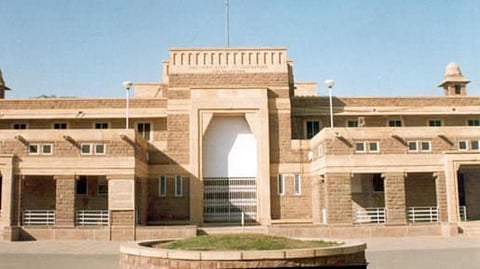

JAIPUR: In a major directive, the Jaipur Bench of the Rajasthan High Court has granted permission for a 13-year-old rape victim to undergo an abortion at seven months of pregnancy. Justice Sudesh Bansal, in his order, stated that forcing the minor to deliver would subject her to lifelong suffering, including challenges related to child maintenance and other complications.
The court highlighted the potential harm to the victim's mental health if she were compelled to give birth, emphasizing that such concerns could not be ignored. Consequently, the court directed the Superintendent of Mahila Hospital, Sanganer (Jaipur), to ensure the necessary medical arrangements for the minor’s abortion.
The victim is scheduled to appear before the medical board on March 12, where the Superintendent has been instructed to facilitate all required procedures. In addition, the State Legal Services Authority has been directed to provide financial assistance to the victim. If the fetus is found to be alive post-abortion, the state government will bear the cost of its upbringing. In case of fetal demise, a DNA sample will be preserved for further investigation.
Medical experts have noted that in cases of delivery at seven months, approximately eight out of ten newborns survive. However, they cautioned that premature birth at this stage carries significant risks, including potential physical and mental disabilities.
The victim’s lawyer, Sonia Shandilya, informed the court that the girl is 27 weeks and six days pregnant. She added that the victim’s parents also sought an abortion. Citing legal precedents, Shandilya argued that both the High Courts and the Supreme Court have previously permitted abortions even at 28 weeks of pregnancy.
During the previous hearing, the court had instructed a medical board comprising three experts to examine the victim and submit a report. The report, presented on March 8, acknowledged the high risks associated with abortion at this stage but confirmed that the procedure was feasible.
According to the Medical Termination of Pregnancy (MTP) Act of 1971, pregnancies resulting from rape are considered to cause severe mental trauma to the victim, thereby justifying termination. In India, abortions are legally permitted up to 24 weeks of pregnancy without court intervention. However, beyond this period, court approval is mandatory.
Under the MTP Act, minors, rape survivors, disabled women, or mentally ill individuals are allowed to terminate pregnancies up to 24 weeks. For cases exceeding this duration, a medical board's recommendation and court authorization are required. An amendment to the MTP Act in 2020 extended the permissible abortion period to a maximum of 24 weeks.
This ruling underscores the judiciary’s recognition of the victim’s rights and the psychological toll of forced pregnancy, setting a significant legal precedent in similar cases.